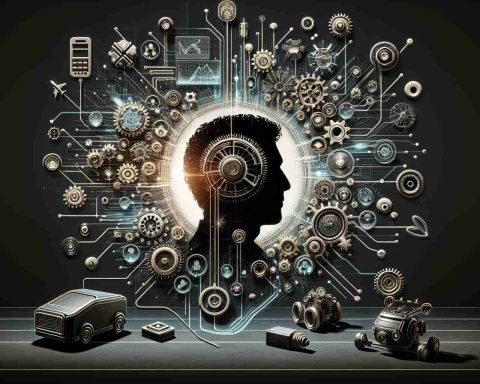AI Takes the Stand in NRW Judiciary
Artificial Intelligence (AI) continues to expand its reach into various sectors, with NRW courts now joining the wave of technological advancement. Collaborating with Bayern, NRW embarks on a groundbreaking journey to integrate AI into its legal system.
Modernizing Justice Through AI
Dr. Benjamin Limbach, NRW’s Minister of Justice, expressed enthusiasm for the joint venture with Bayern, emphasizing the role of AI in modernizing the judicial landscape. The development of a tailored language model for legal purposes aims to enhance efficiency and uphold Germany’s digital sovereignty.
Academic Support for Legal Innovation
The universities of Cologne and Munich are at the forefront of this transformative initiative, led by esteemed professors. Their involvement underscores the commitment to exploring new horizons in legal technology and fostering collaboration between academia and the judiciary.
AI Pioneering Legal Transformation
The adoption of the Generative Language Model of Justice (GSJ) signifies a monumental shift in how legal processes are conducted. By harnessing AI capabilities, NRW anticipates streamlining legal procedures, facilitating access to justice, and alleviating the burden on overburdened courts.
Looking Towards the Future
As the pilot phase progresses until the end of 2026, the focus remains on leveraging AI to simplify legal complexities and improve the judicial landscape. Limbach and Eisenreich’s shared vision emphasizes the long-term goal of enhancing legal accessibility while ensuring judicial efficiency and adaptability in the face of evolving legal challenges.
Exploring the Potential of AI in Revolutionizing Justice: Unveiling New Facets
Amidst the AI-driven transformation sweeping through NRW courts in partnership with Bayern, an array of compelling facts and nuances illuminate the path towards a technologically enhanced legal system.
Key Questions and Answers:
– How does the integration of AI in the judicial landscape contribute to efficiency and digital sovereignty?
– The integration of a tailored language model for legal purposes underpins efforts to streamline legal processes, enhance operational efficiency, and maintain Germany’s digital sovereignty.
– What are the primary challenges or controversies associated with AI adoption in the judicial sector?
– One of the key challenges lies in addressing concerns about data privacy, algorithm biases, and the potential implications for human decision-making, raising questions about accountability and transparency in legal AI applications.
Advantages and Disadvantages:
Advantages:
– Improved Efficiency: AI-powered tools can automate repetitive tasks, expedite legal research, and provide valuable insights to support decision-making processes.
– Enhanced Access to Justice: By streamlining legal procedures and reducing backlog, AI can contribute to improved access to justice for individuals and organizations.
Disadvantages:
– Ethical Concerns: The use of AI in legal decision-making may raise ethical dilemmas related to accountability, explainability of AI decisions, and potential biases in algorithmic outcomes.
– Risk of Job Displacement: Automation of certain legal tasks could lead to concerns about job displacement among legal professionals, necessitating a balance between technological advancements and workforce sustainability.
As NRW courts traverse the uncharted territories of AI integration in legal proceedings, the balance between innovation and safeguarding the essence of justice remains at the forefront of discussions and deliberations.
Suggested related link: NRW Courts Website

















